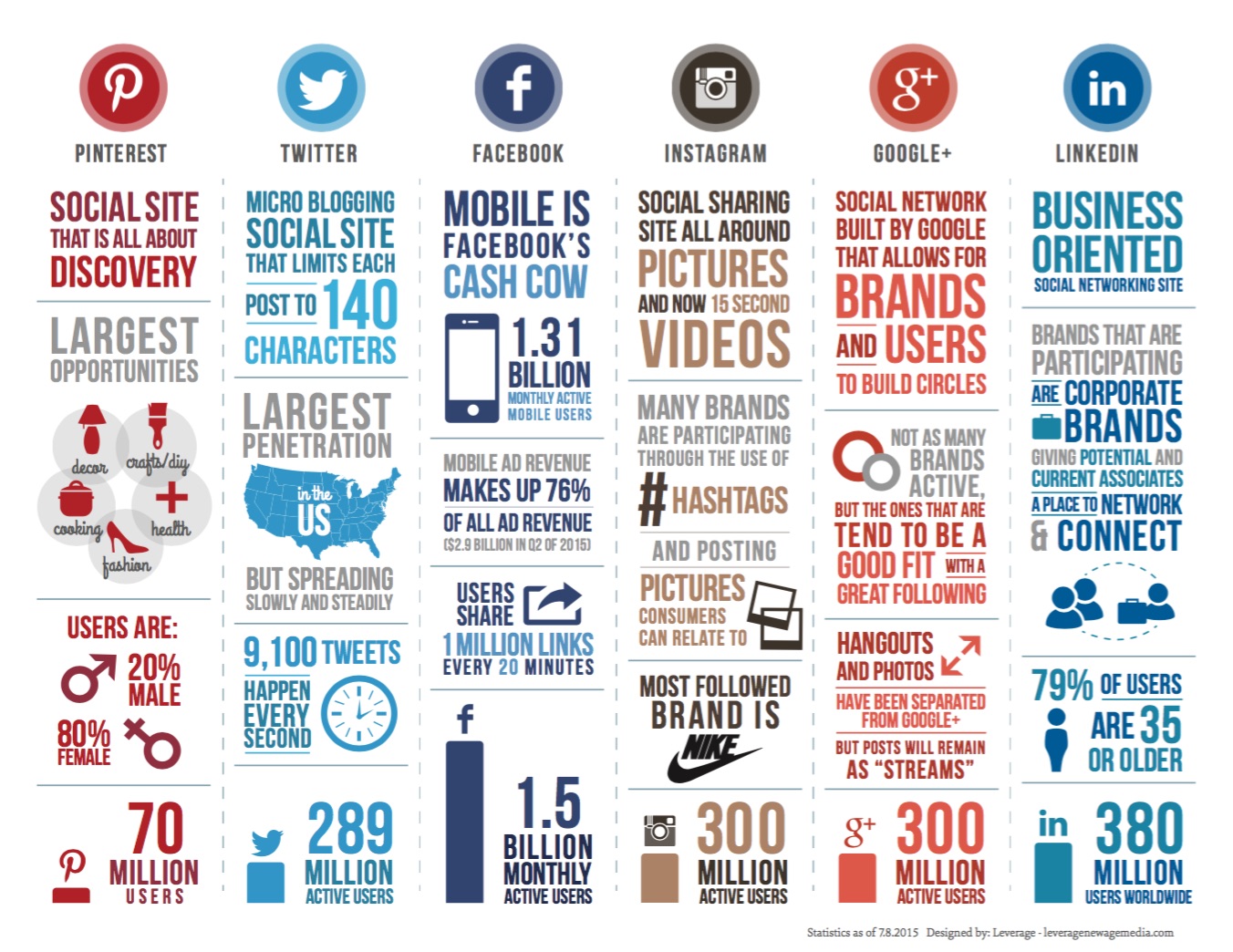Social Media Marketing
Social media can help small businesses reach more customers and establish relationships and trust with existing customers.
We help small businesses with various aspects of social media - creating a social media strategic plan, developing a content calendar, drafting content, designing infographics, managing posts and comments, managing paid advertising, and measuring results.
Creating a social media marketing plan
It's important to start out with a strategic plan with clear objectives. Your social media plan will likely evolve over time as you learn more about the online behaviors of your audiences and how they prefer to engage with you online.
Some key considerations to ask yourself when creating your plan:
- What are your goals and objectives, and what are you hoping to achieve through social media marketing?
- Who is your target audience?
- Where does your target audience hang out and consume online information? How do they use social media?
- What message do you want to send to your audience?
- What is your tone and what types of posts will best engage your audience?
- How much time and effort are you and your staff willing to dedicate to social media?
- What is your social media budget (short-term or long-term)?
Developing and posting social media content
Make sure you are offering valuable information that your ideal audiences will find interesting. If most of your posts are sales pitches for your products or services, people will stop listening. Use social media to develop relationships. Create a variety of content including images, videos, and infographics.
Just as you would like your audiences to share your content with their online networks, it's perfectly acceptable to share content created by others. Linking to outside sources improves trust and reliability, and you may even get some links in return. In fact, you can strategically use this approach can help you establish relationships with industry influencers and increase your visibility through reciprocal sharing and acknowledgments.
A content calendar is a useful tool to manage your social media content to ensure you are posting a variety of content that is interesting and compelling. Digital tools, such as HootSuite, will allow you to schedule your content to post at specific times, when your audience is most likely to see it.
Analyzing and measuring results
There are ways to measure social media and to use data analytics to identify opportunities and improve social media and online performance.
You can use analytics to better understand your audience - their demographics, interests, peak usage times and more to improve your reach and engagement.
We measure your social media ROI based on specific objectives. For example, if the goal is to attract people to your website or encourage people to sign up for your newsletter, Google analytics can measure how many visitors were brought to your website through social media, the pages they visited and actions taken. Additionally, landing pages on your website that are directly related to specific social media campaigns and feature opportunities to sign up, purchase or contact you directly from the landing page can be useful for converting visitors. Other metrics such as cost-per-click, impressions, shares, and others can also be utilized to calculate ROI.
Of course, not all the rewards of social media can be measured. Social media can be a powerful tool for building awareness, relationships and trust which are difficult things to measure!

